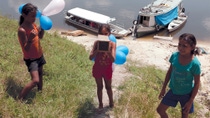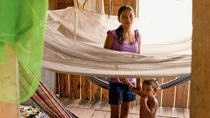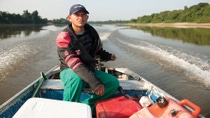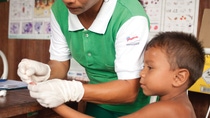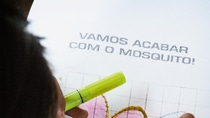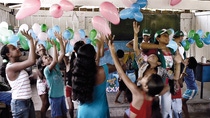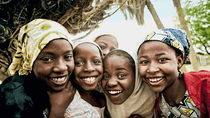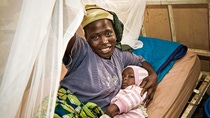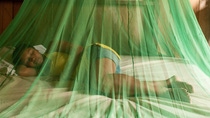Chi siamo
Making a difference

While sub-Saharan Africa bears the brunt of the malaria burden, other areas of the world are under similar strain. In some states in Brazil, particularly those located near the Amazon forest, malaria is the major public health problem. The small community of São José do Jabote, Urucará, is in one such malaria hotspot.
Here, the warm climate and abundant water supply offer ideal conditions for the malarial mosquito to survive, thrive and infect the human population. The consequences for São José do Jabote’s men, women and children have been dire.
In 2007, malaria was as rife as the common cold, with each person in São José do Jabote contracting the disease at least three times a year. School attendance had plummeted and, unsurprisingly, the community’s educational objectives were under threat. It was here that BASF, in partnership with Foundation for Health Surveillance in Amazonas (FVS – AM), launched a study to assess the effectiveness of Interceptor®, BASF’s long-lasting insecticidal net.
In late 2008, the project kicked off: Interceptor® nets were placed in every house in São José do Jabote. Residents were also coached on how to use the nets and what they were for. The results were impressive. Just two years later, the incidence of malaria had fallen by 97%, with only one person in every 12 contracting the disease. The positive effects rippled throughout the community. Free from malaria, the children were finally able to regularly attend school – allowing the community to meet its literary objectives in just two years. These effects typify one of the major targets of the U.N. Millennium Development Goals – namely, that a healthier, more educated population is key to sustainably support poverty reduction.
BASF is convinced that supporting and engaging in simple local projects can bring life-changing benefits. The results in São José do Jabote bear this out.

